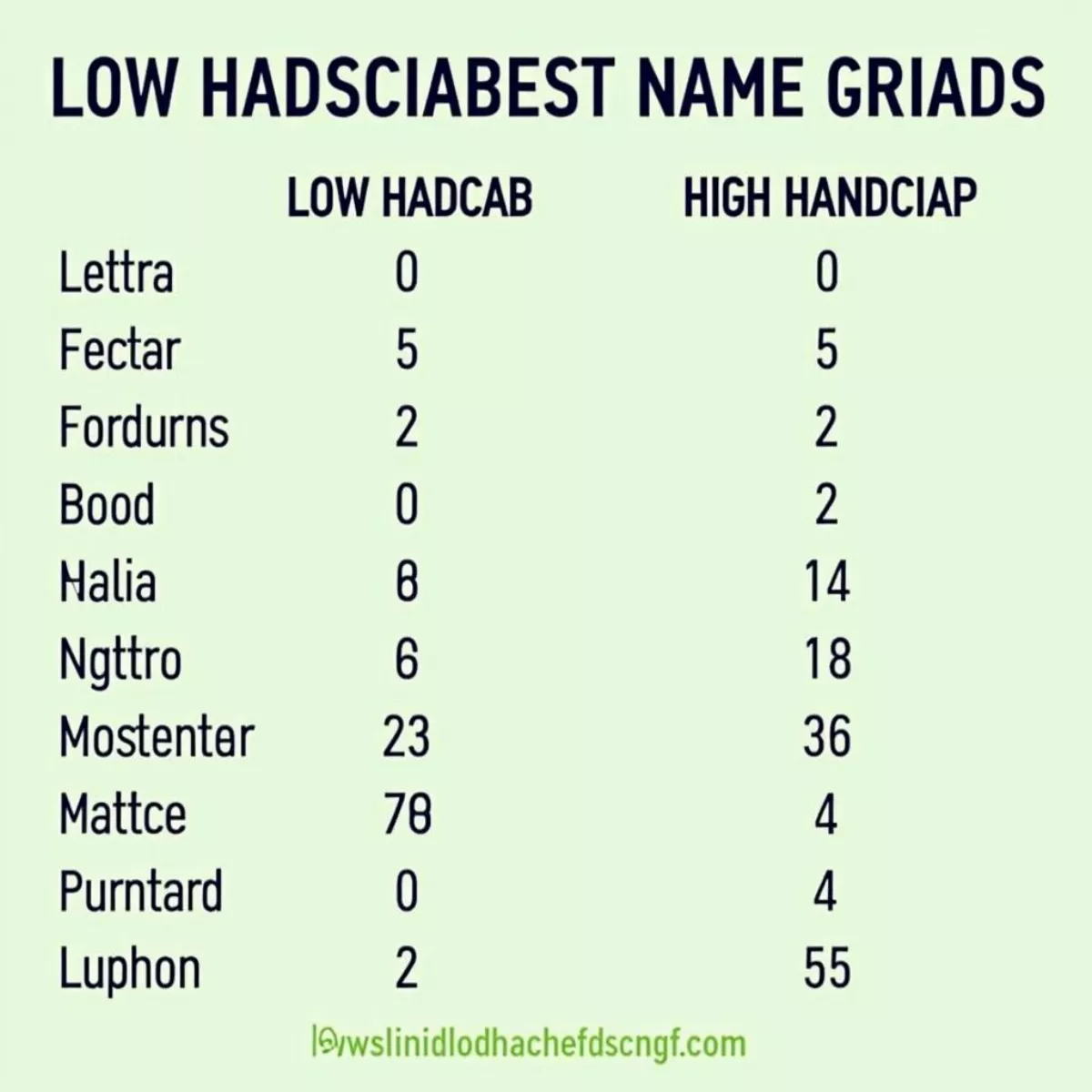what is a low handicap in golf

Golf is a sport that intertwines skill, strategy, and a continuous journey of improvement. If you’re venturing into the world of golf, you’re likely to hear the term low handicap tossed around frequently. But what does it really mean? In this guide, we’ll dissect what a low handicap is, how it impacts your game, and what you can do to achieve one.
What is a Handicap in Golf?
Before diving into the specifics of a low handicap, it’s essential to understand what a handicap is. Named after the “handicapper”, who helps ensure fairness in competition, a golf handicap is a numerical measure of a golfer’s potential ability based on their past performance. The lower the number, the better the player is considered.
How is a Handicap Determined?
Your golf handicap is calculated using the following formula:
- Score Adjustment: Take your adjusted gross score (the total number of strokes you took on a round, adjusted for any course-specific maximum number).
- Course Rating: This is a value that indicates the difficulty of a course for a scratch golfer.
- Slope Rating: This measures the difficulty of a course for a bogey golfer compared to a scratch golfer.
Thus, the formula to calculate your handicap index is:
Handicap Index = (Adjusted Gross Score – Course Rating) × 113 / Slope Rating
Example Table: Understanding Golf Handicaps
| Player | Score | Course Rating | Slope Rating | Handicap Index |
|---|---|---|---|---|
| John Doe | 90 | 72 | 130 | 18.5 |
| Jane Smith | 78 | 74 | 120 | 5.7 |
| Mike Brown | 83 | 70 | 135 | 14.6 |
In this table, you can see that Jane Smith, with a handicap index of 5.7, enjoys the label of a low handicapper, while John Doe, at a handicap of 18.5, is categorized as a higher handicap golfer.

What Does a Low Handicap Mean?
A low handicap generally refers to golfers who have a handicap index of 10 or lower. This group of players is often seen as highly skilled and capable of performing reliably on the course. Achieving a low handicap indicates:
- Consistency in Performance: Low handicappers are adept at making fewer mistakes during their rounds.
- Solid Fundamentals: These golfers usually possess strong fundamentals in driving, iron play, chipping, and putting.
- Mental Game Mastery: A low handicap often reflects the golfer’s ability to stay focused and composed under pressure.
Key Characteristics of Low Handicappers
- Accurate Drives: Boasting an average drive distance with impressive accuracy.
- Effective Course Management: Understanding when to take risks and when to play conservatively.
- Consistent Short Game: Proficient in chipping and putting, keeping their scores low.
- Physical Fitness: Many low handicappers incorporate fitness into their golf routine to enhance their performance.

How to Achieve a Low Handicap
Achieving a low handicap isn’t an overnight endeavor; it takes dedication, practice, and the right approach. Here are some actionable tips:
1. Practice Routines
- Driving Range: Dedicate time to work on your driving.
- Short Game: Spend half your practice time on putting and chipping.
- Course Play: Finally, practice under competitive conditions.
2. Set Realistic Goals
- Incremental Goals: Set small, measurable goals for improvement over time.
3. Seek Professional Coaching
- Having a professional coach can help you identify weaknesses and hold you accountable.
4. Track Your Progress
- Utilize apps or journals to track your scores and analyze your performance.
5. Fitness
- Physical conditioning will improve your endurance and reduce injury risks.
6. Mental Training
- Techniques such as visualization and breathing exercises can help lower anxiety during play.

FAQs About Low Handicaps in Golf
1. What is considered a low handicap in golf?
A low handicap is generally defined as a handicap index of 10 or less.
2. How can I improve my handicap?
You can improve by practicing regularly, setting specific goals, and possibly working with a coach.
3. Is having a low handicap important for playing golf?
While it can enhance competitiveness, it’s more about personal satisfaction and improvement.
4. What is a scratch golfer?
A scratch golfer has a handicap index of 0, meaning they can play the course at par consistently.
5. How often should I play to improve my handicap?
Playing at least once a week and practicing regularly is beneficial.
6. Can my handicap fluctuate?
Yes, a golfer’s handicap can change based on performance over rounds played.
7. What is a good first goal for a beginner?
Beginner golfers often aim for a handicap between 18 to 36 as they start their golfing journey.
8. Does equipment affect my handicap?
While quality equipment can assist in performance, consistent practice and technique are more critical.
9. Is it okay to play with golfers of different handicaps?
Absolutely! Playing with diverse skill levels can offer learning experiences and enjoyment.
10. How does the course influence my handicap?
The course rating and slope rating directly influence your handicap calculation, as they provide context to the difficulty of the course.
Key Takeaways
- A low handicap in golf typically refers to an index of 10 or less, indicating highly skilled players.
- Understanding the components of your handicap—such as score adjustment, course rating, and slope rating—is crucial.
- A commitment to regular practice, fitness, and mental training can help you achieve your goal of obtaining a low handicap.
- Engaging with players of various skill levels and tracking your progress will facilitate personal growth and enjoyment of the game.
The path to achieving a low handicap is filled with learning, practice, and passion. By focusing on essential skills, setting realistic goals, and maintaining a positive mindset, you can take your golf game to new heights. Happy golfing!